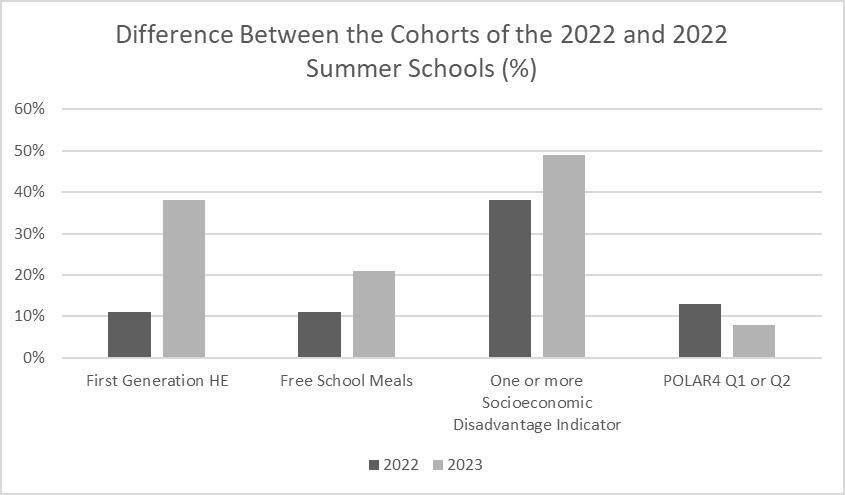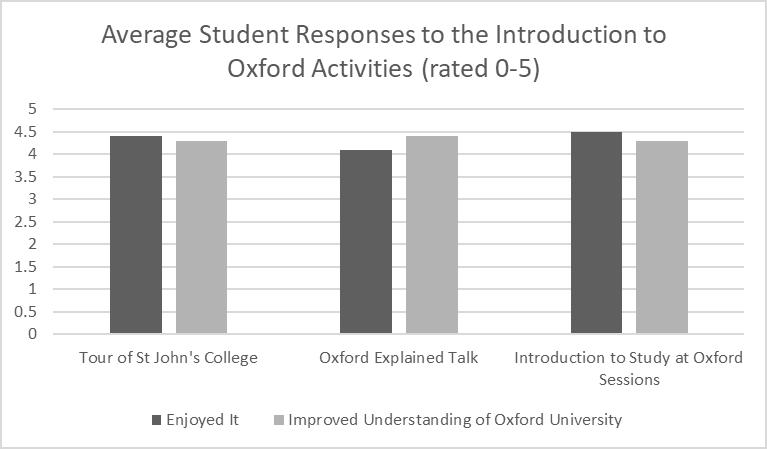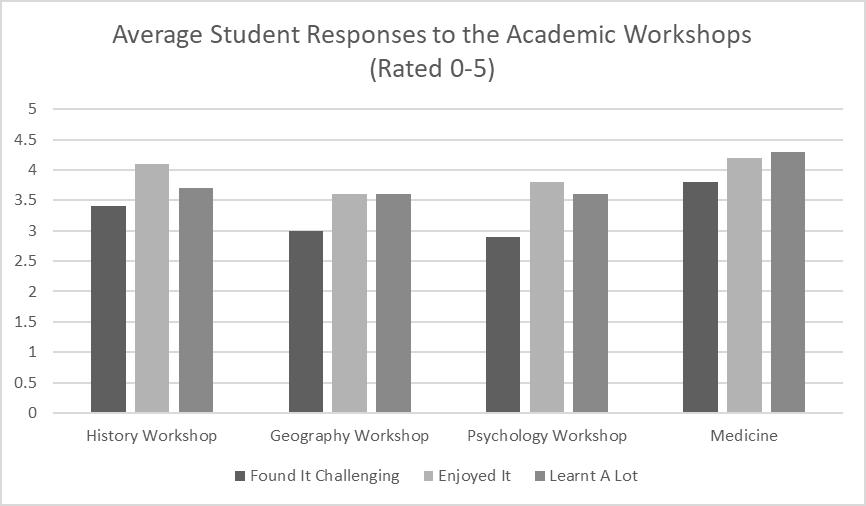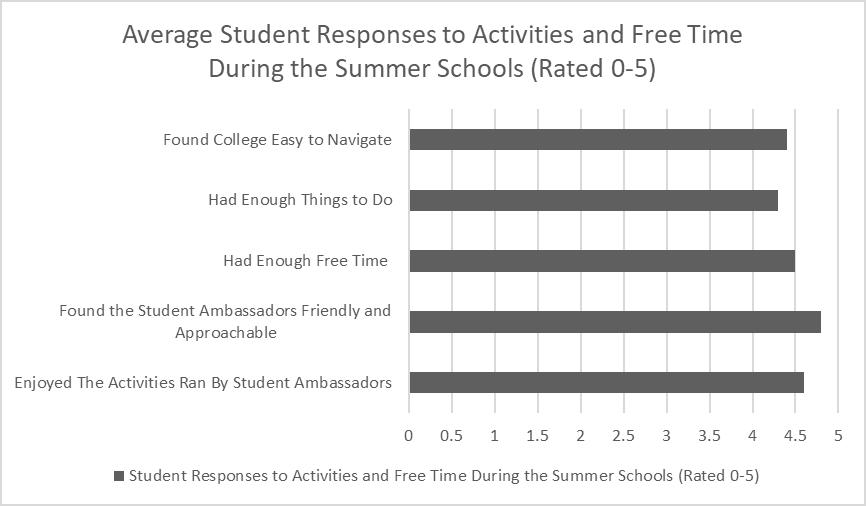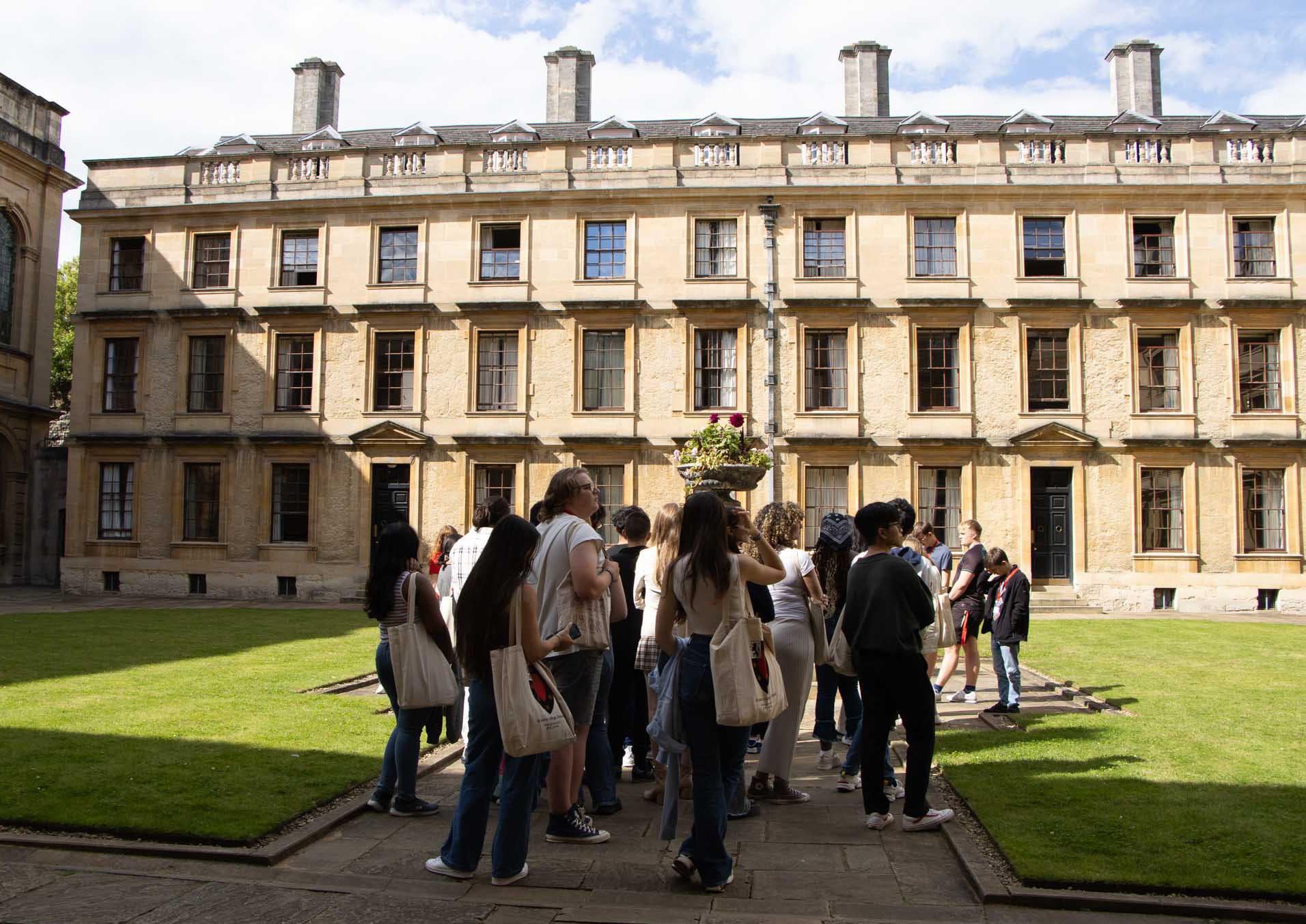Year 12 Summer Schools 2023
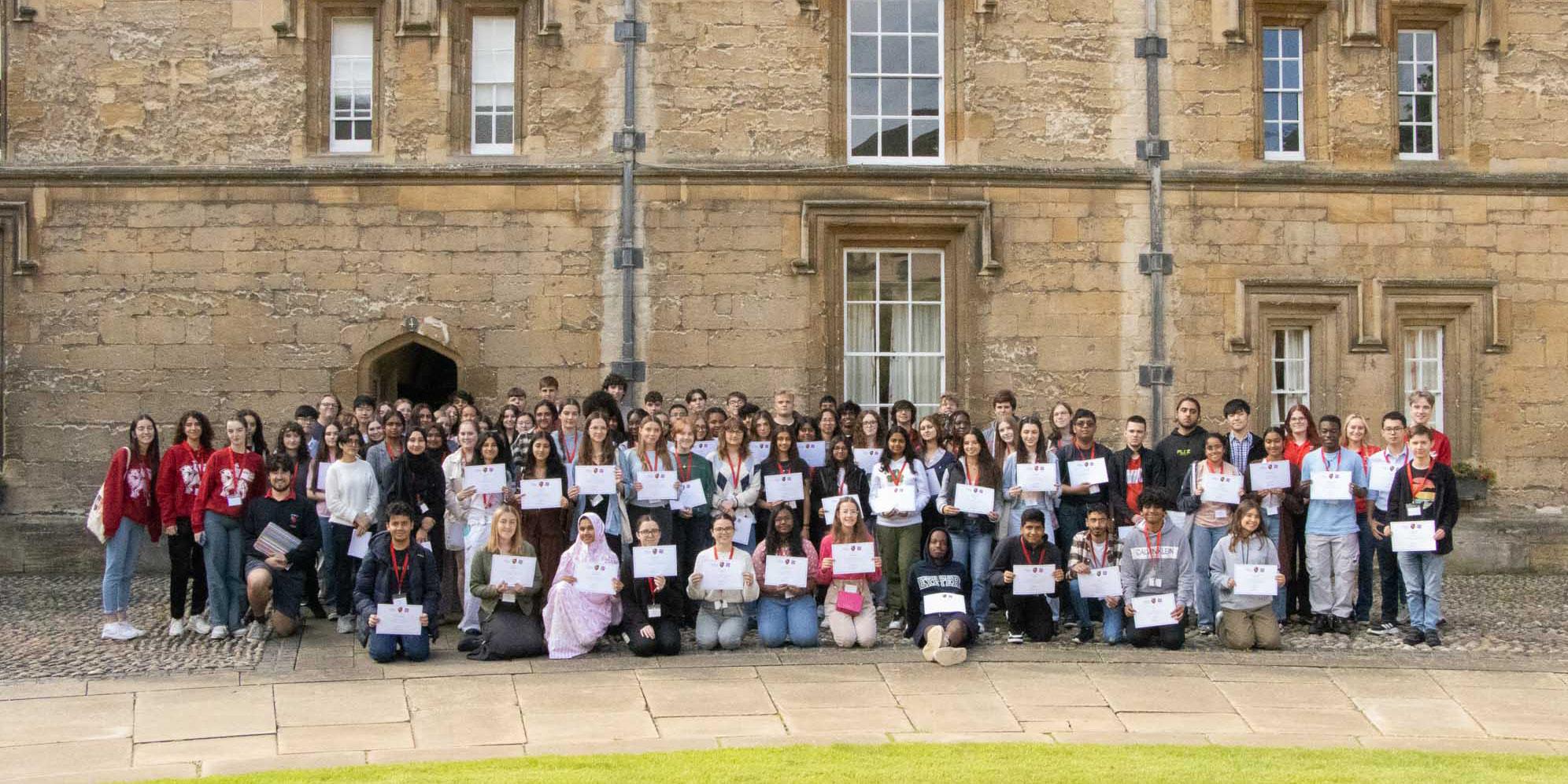






• 96 students, aged 16-17 and enrolled in the Year 12 Inspire Programme, were selected to attend the Residential Summer School based on competitive entry and socioeconomic disadvantage markers.
• These students came from our link schools in Ealing and Harrow in London, East Sussex, West Sussex and Southhampton City.
• The Residential Summer School ran for three nights, with students taking part in a range of academic and social activities across four days.
• Direct quotes from student feedback about the Summer School can be found throughout this booklet.

• 545 Year 12 students took part in the Virtual Summer School, which was held over the course of a week.
• Students were given access to academic talks and career interviews with various specialists, as well as the opportunity to submit to essay competitions with prizes.
• The essay competitions included topics such as how responses to past pandemics can help us understand contemporary disease responses; the function of the ‘R’ number in mathematical biology; and the introduction of women into Oxford colleges in the 1970s.


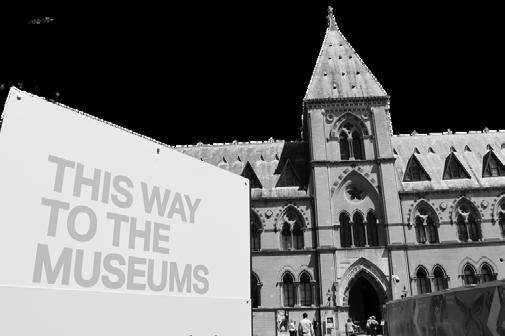

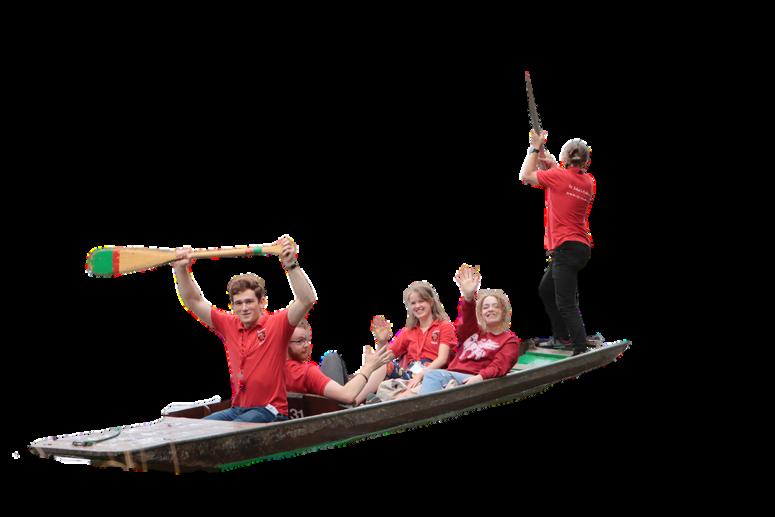

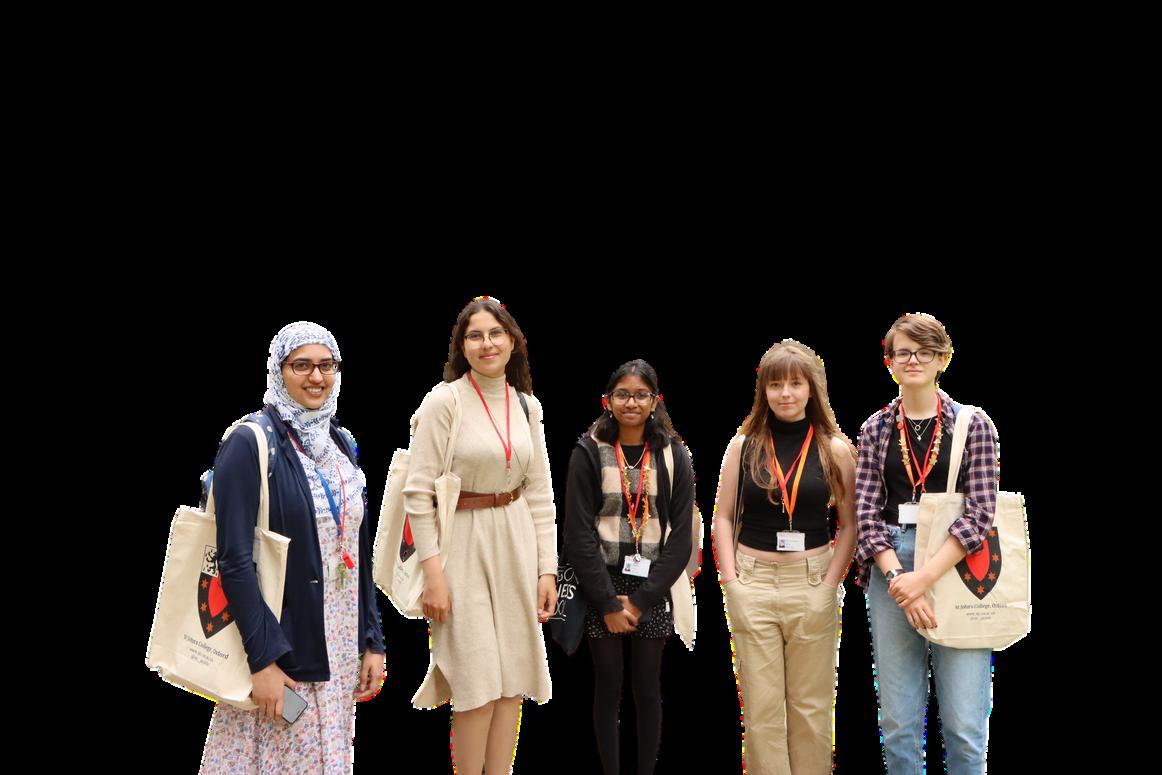



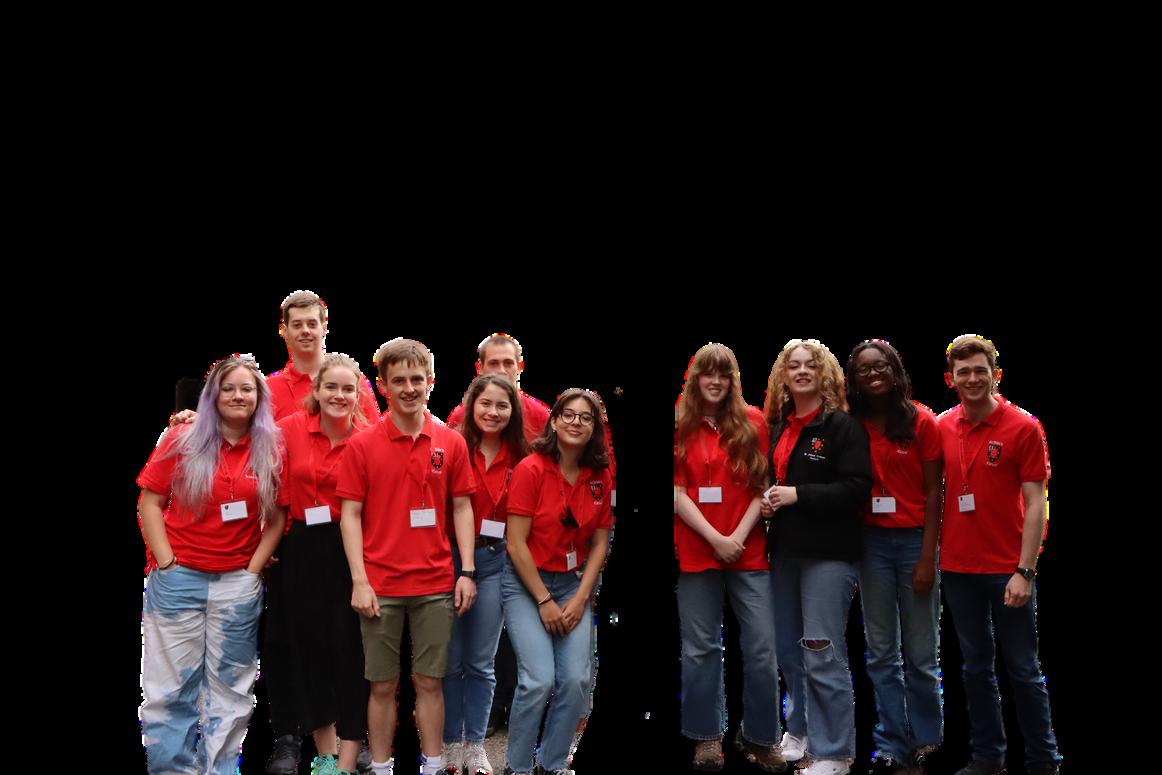

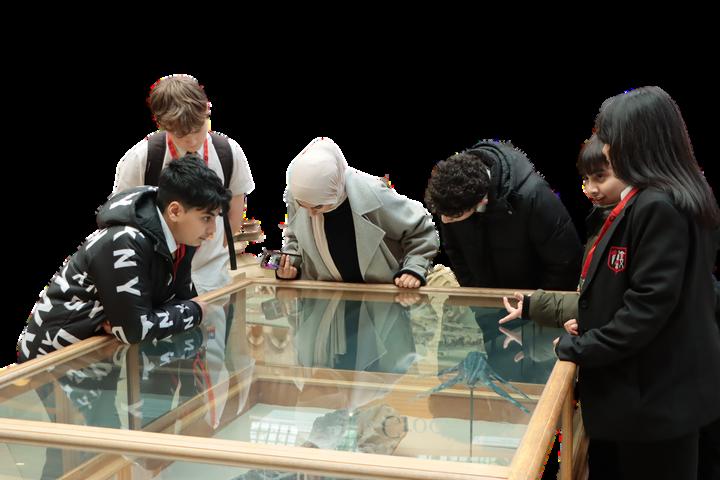



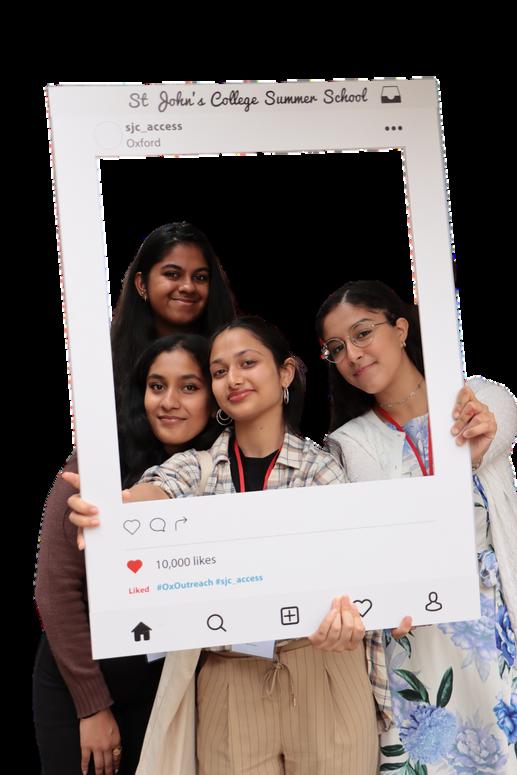




12:00
13:30
Introduction to Study
at Oxford – Part 2 (Meet n Garden Quad reception room)
Lunch in Hall
Punting & Graffiti
Workshops (Cherwel Boathouse/Grass area between Tommy White and Garden Quad)
18:30


BBQ Dinner

(hall)
Ceremony & Photos (hall)
20:00 23:00
Garden Games e.g Rounders & Strategic Capture the Flag OR AI / Creative Ar ts Session Room Curfew



“The history session was really interesting and provided lots of insight into what studying / seminars are like in Oxford - Petros was a great tutor!”
Dan Hall, the Access Lead at the Oxford School of Geography and the Environment, introduced students to the field of geopolitics through a talk about the political implications of sinking islands, with time for group discussion at the end.
“I really enjoyed the academic taster session because it allowed us to handle old primary sources.”
Dr Petros Spanou provided a session about the cultural and intellectual importance of illustrated newspapers and periodicals in nineteenth-century Britain. Students handled genuine copies of the ‘Illustrated London News’, dating from the 1850s, and participated in class discussion. At the end of the session, pupils sketched the title page of their own newspapers in groups.
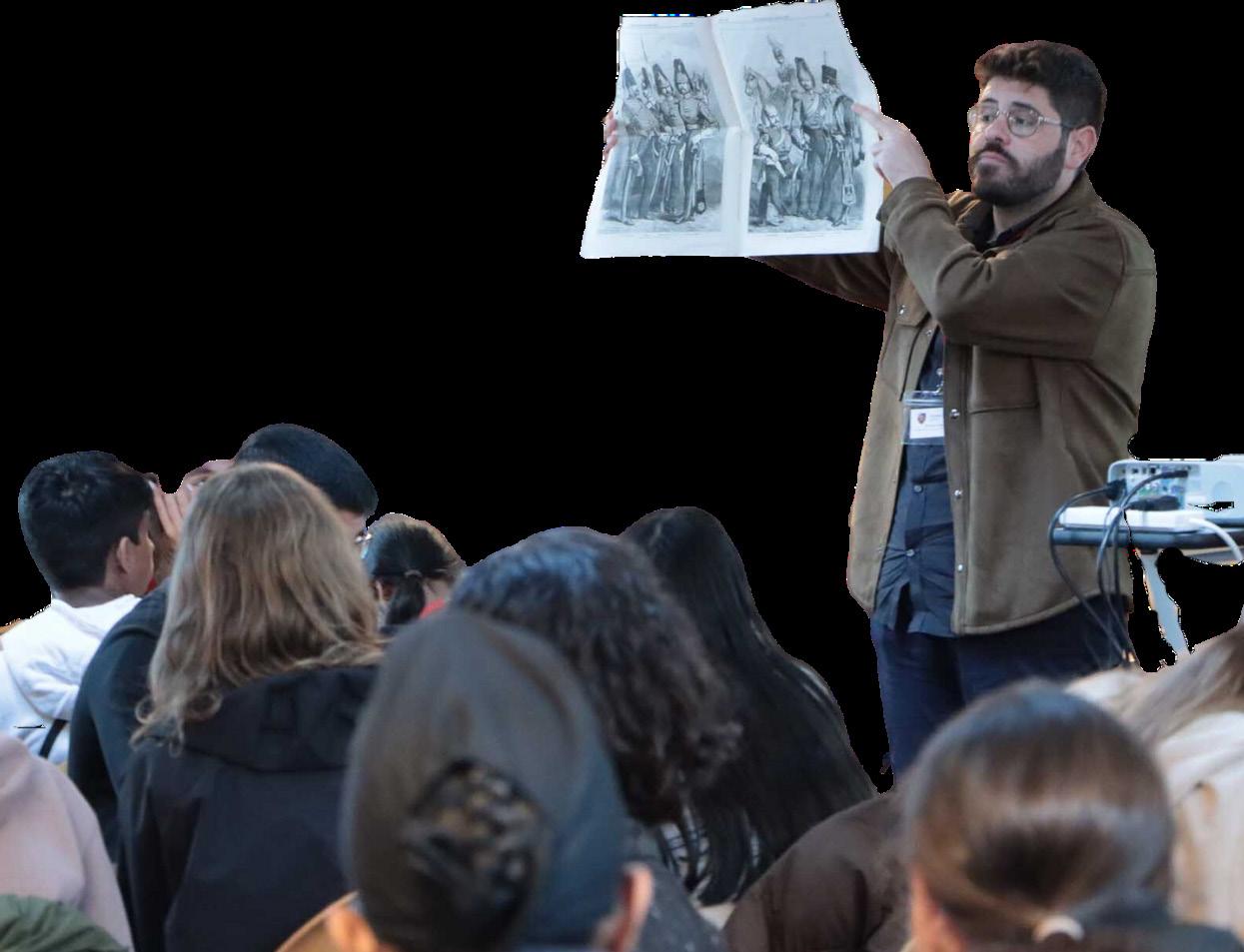
“The sessions really gave me a really solid understanding and insight into the method of Teaching at Oxford.”
Graduate Medicine student Jonathan Hampshire gave an introduction to studying medicine at Oxford University, as well as a taster lecture about the use of anaesthesia.
Rachel Pindar, a Fourth Year Chemistry student at St John’s College, gave a session about studying chemistry at Oxford, including a taster lecture about how cells manage to survive in highly saline conditions.
“The atmosphere of the college was wonderful! Everyone was so approachable and easy to talk to and the academic sessions were all really engaging and great to take part in!”
Professor Lawrence Hunt, a Tutorial Fellow in Psychology at St John’s College, gave students a session about experimental psychology, showing students how they can explore the cognitive and neural mechanisms by which humans make decisions by measuring brainwaves.
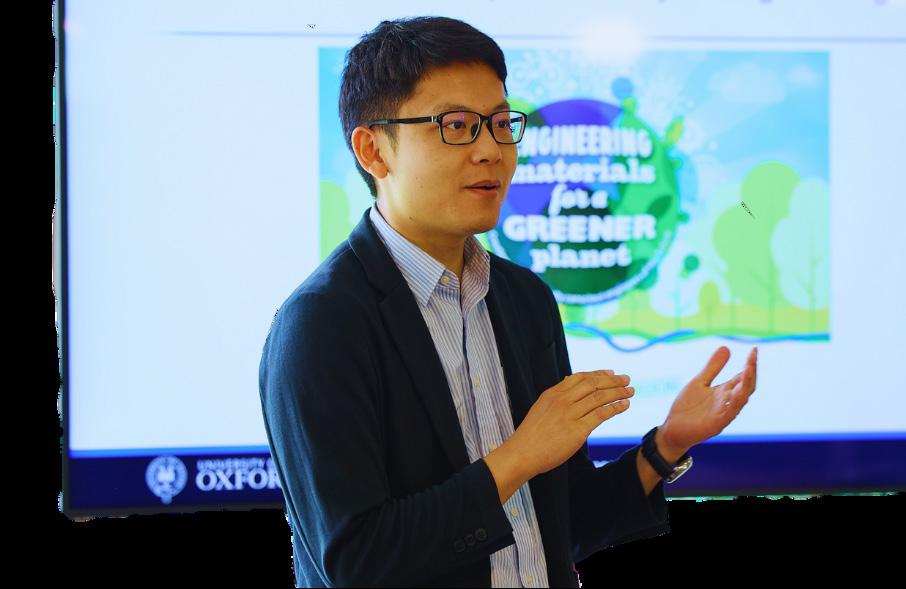
The Introduction to Study at Oxford sessions were created to give students a taste of the unique Oxford tutorial style of independent and learning and research. Prior to the Summer Schools, Year 12 students were given a list of 16 questions to choose from, covering a range of topics. They were then given a reading list for their chosen question, alongside the printed materials, to research in advance of the study sessions, where they presented their thoughts on the topic to a group of other students. Students then received feedback on both their written work and their presentation skills.
“I found these to be extremely useful for my applications since I thoroughly enjoyed the more personal experience I could receive whilst learning and it helped me stay engaged.”
“I really enjoyed talking with the student leaders in the Introduction to Study sessions, as they gave great insight about studying law at university.”
“I really liked the introduction to Oxford talks and I liked exploring new topics and having an insight into a new learning style.”
• Should you believe your history teacher?
• Should children strike to demand action on climate change?
• What would it mean to live without laws?
• Should we read texts in translation?
• Would society be better if there were more scientists in positions of political power?
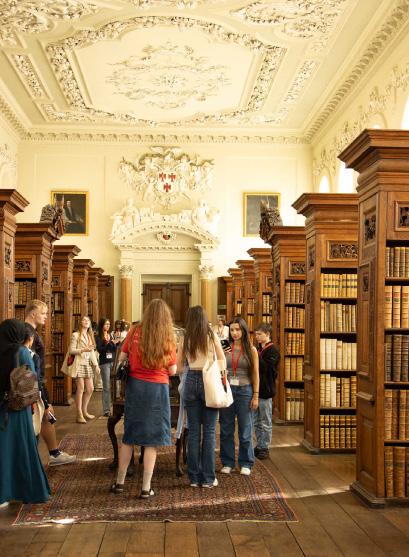
• Is geoengineering a solution to climate change?
• Is inequality an inevitable outcome of economic growth?
• Are explosions always destructive?
• Could we end disease?

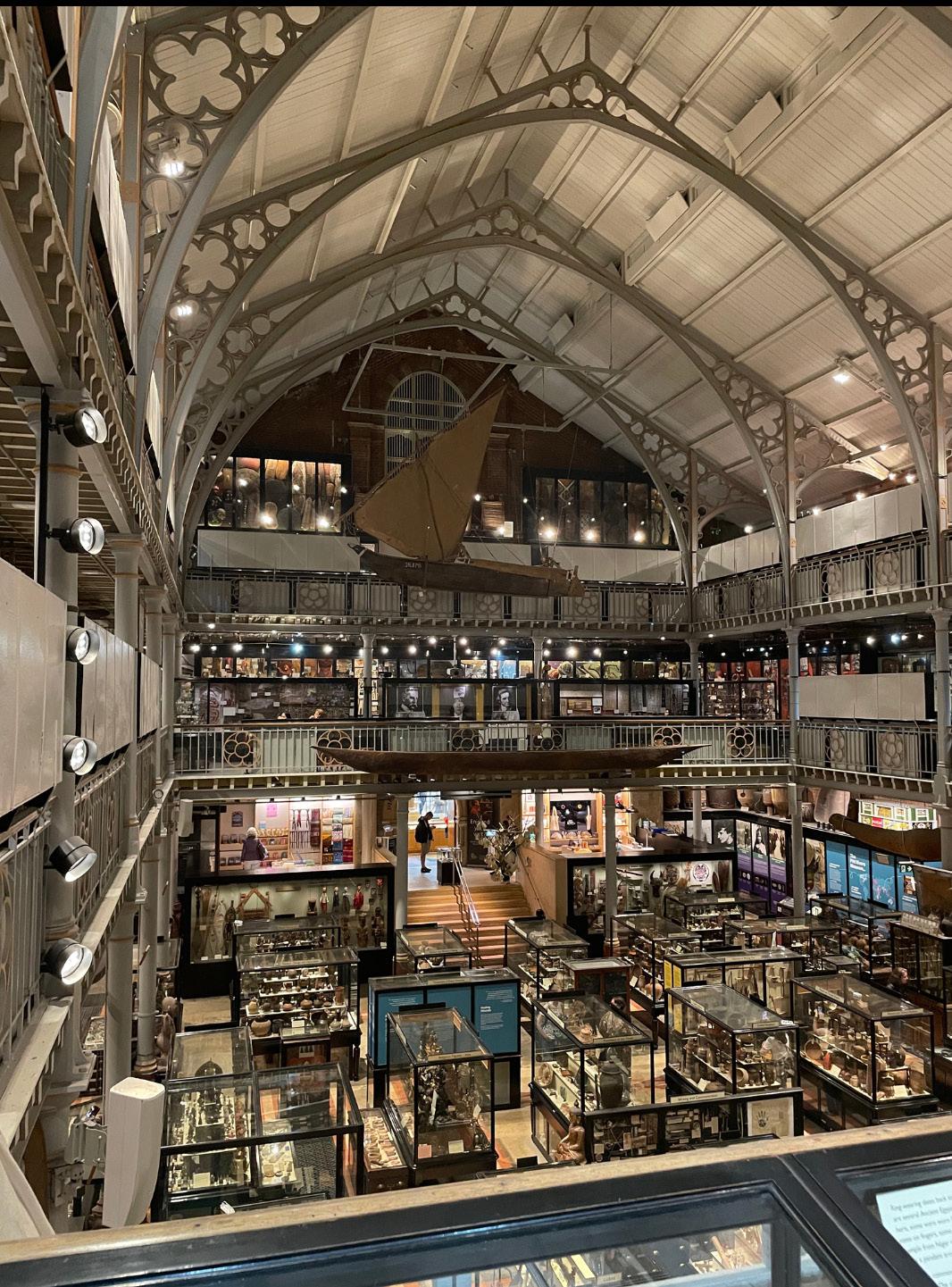

“My favourite part of the summer school was definitely the punting trip. Being in the pouring rain with friends you have just made and trying to stay afloat was a really fun experience that I had never imagined doing. This was so great as it showed there’s more to life at Oxford University than just academia.”
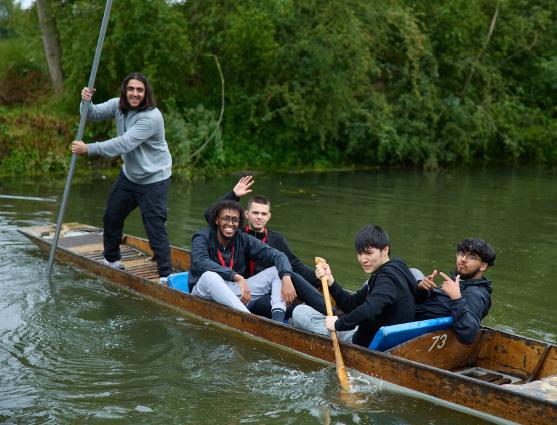
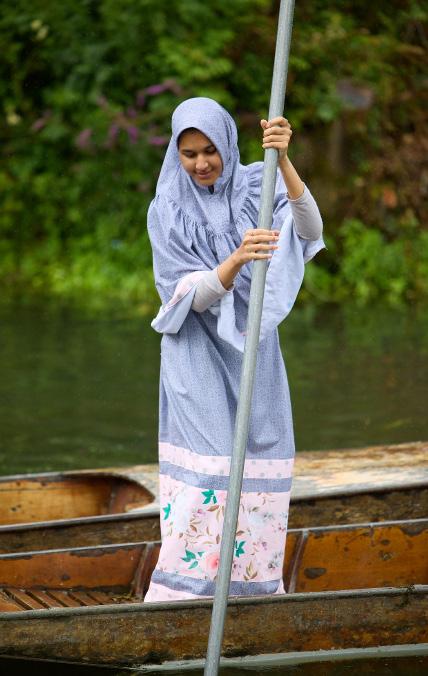
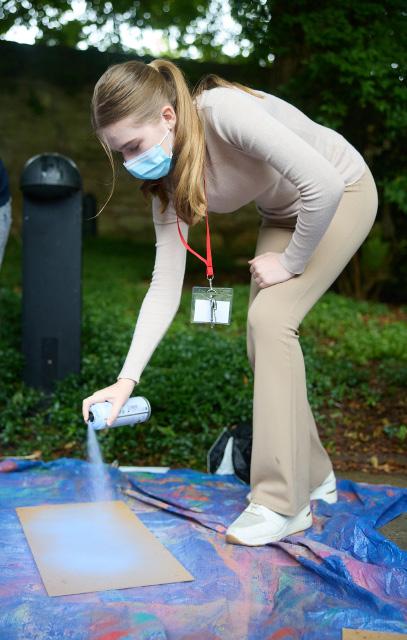
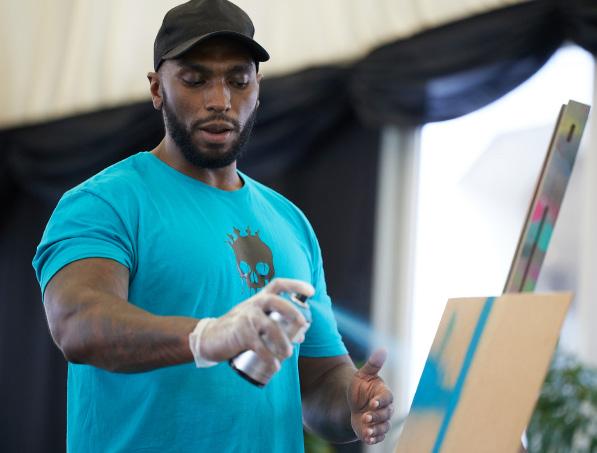

“I loved the graffiti workshop and being able to have the freedom to explore the city and stay in the college rooms.”
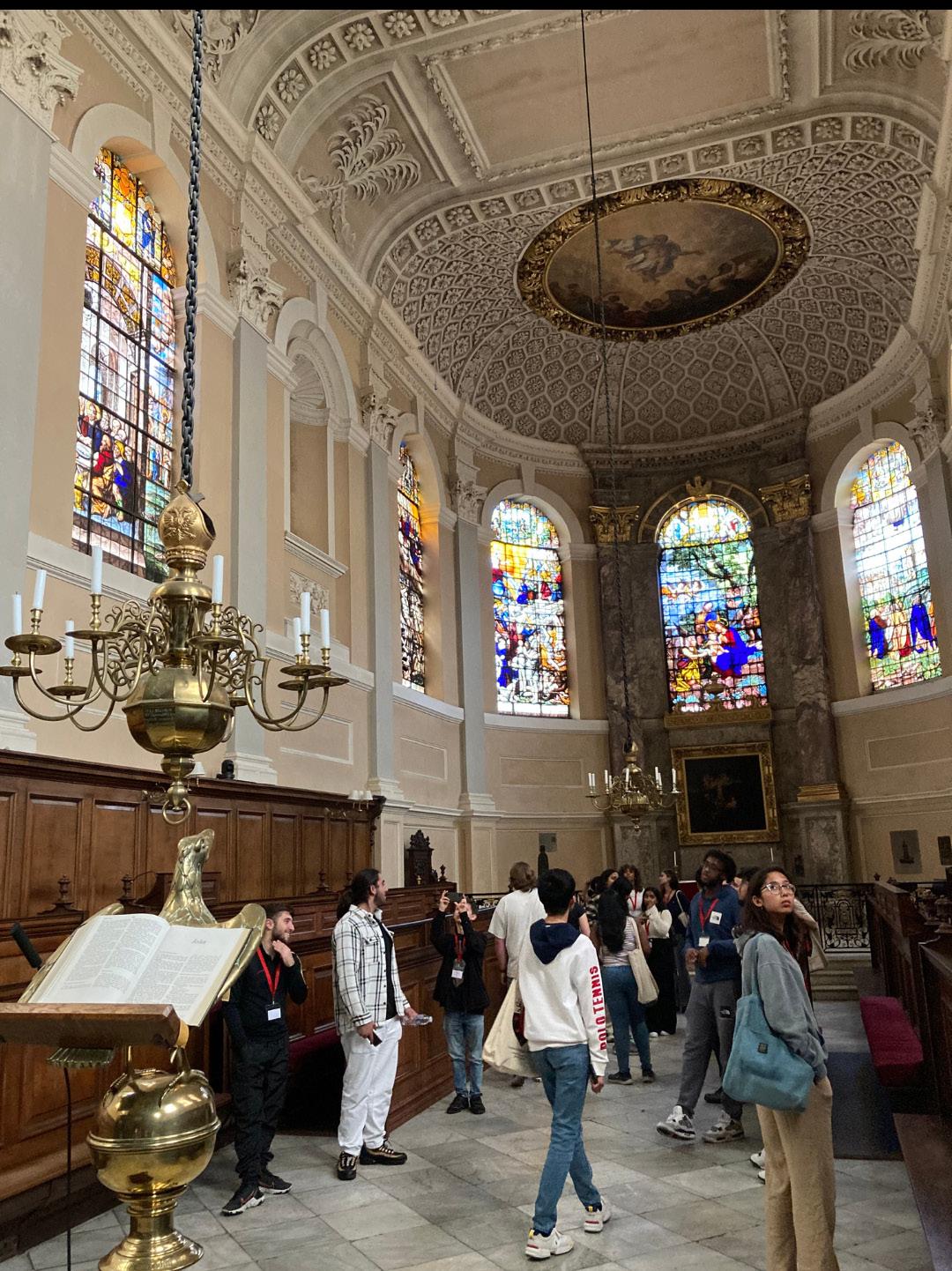
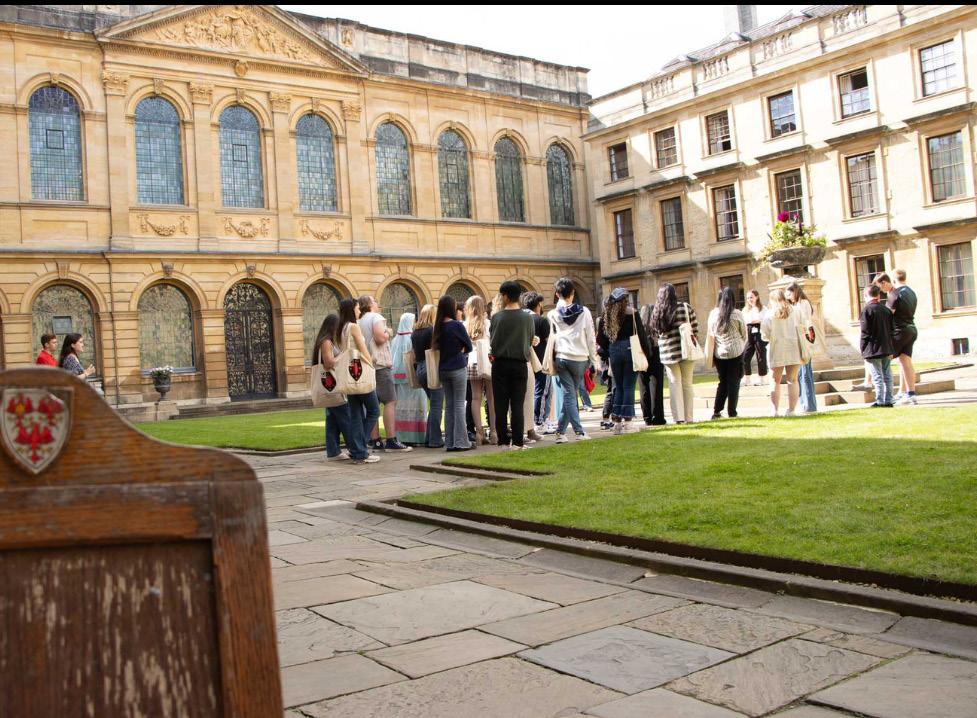
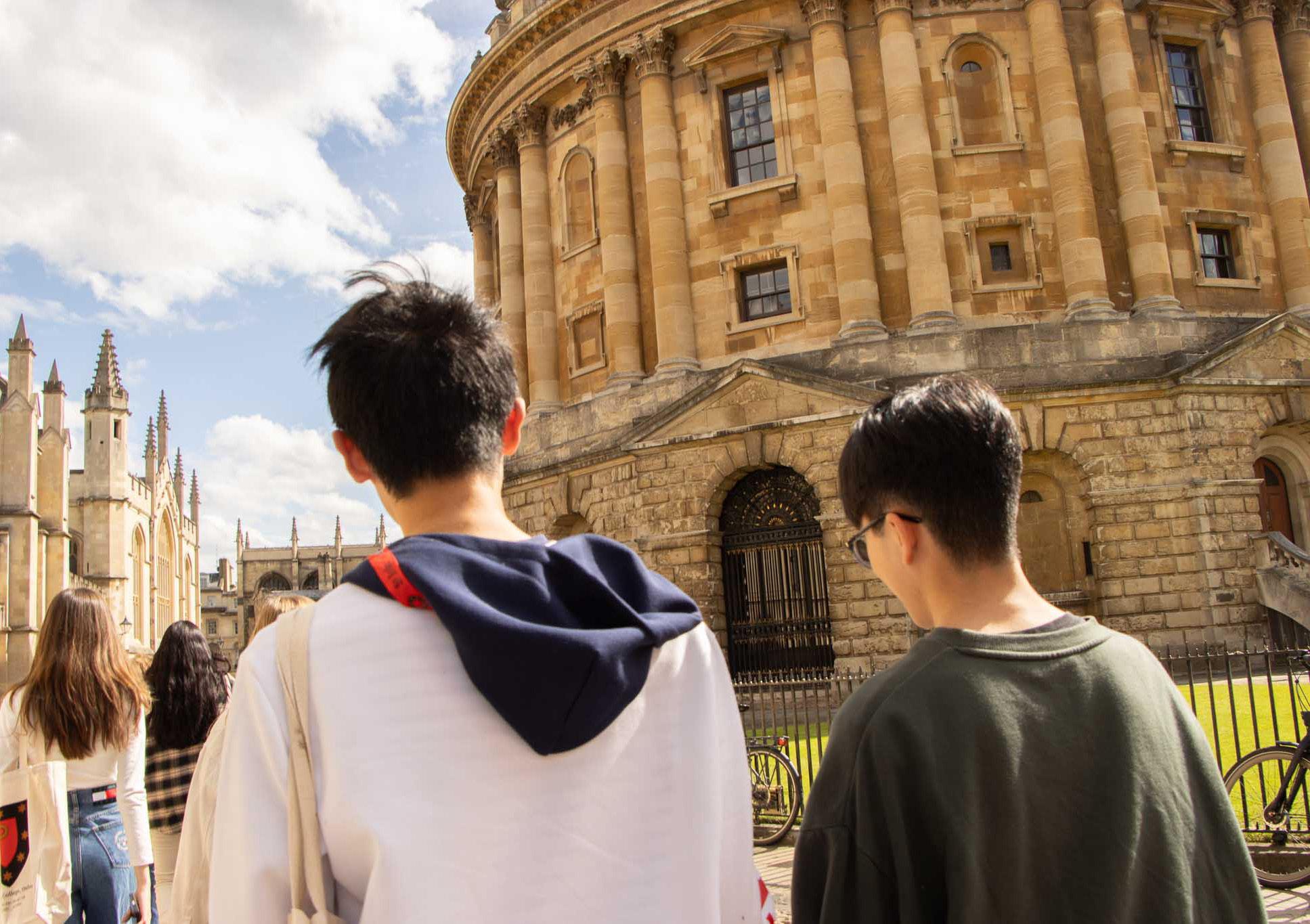
“I really enjoyed punting and the general atmosphere of getting to know like-minded people and making friends during the free time. I enjoyed the formal dinner.”
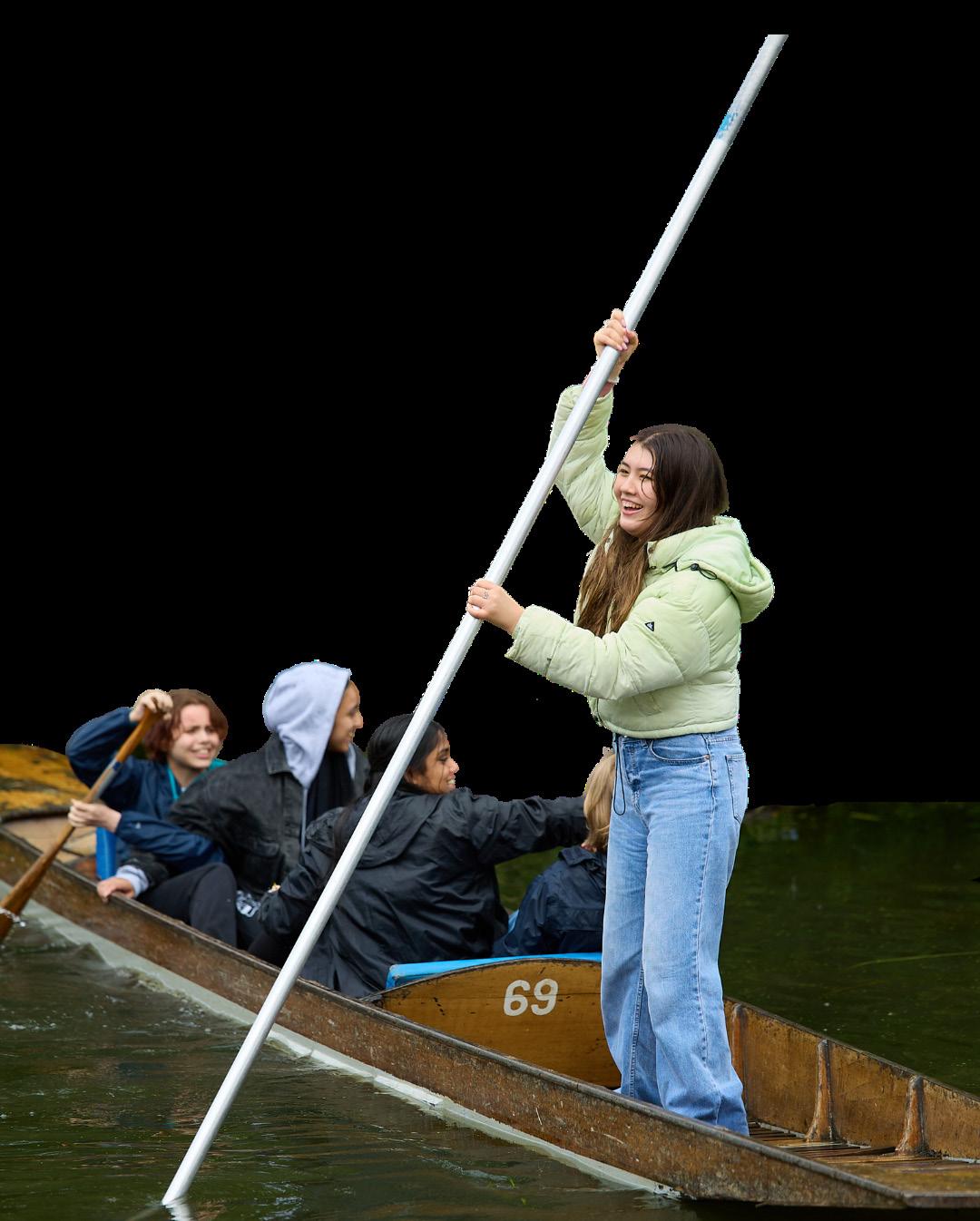
“The colleges and the city itself were breathtaking and I liked that it has made
“The atmosphere of the college was wonderful! Everyone was so approachable and easy to talk to and the academic sessions were all really engaging and great to take part in!”
“I’m so grateful for the experience and lucky to have attended. I enjoyed every single minute of it, and has motivated me to study at Oxford at some point in my life. I can’t think of a single improvement. It was also a perfect balance of experiencing the place and the academic side.”
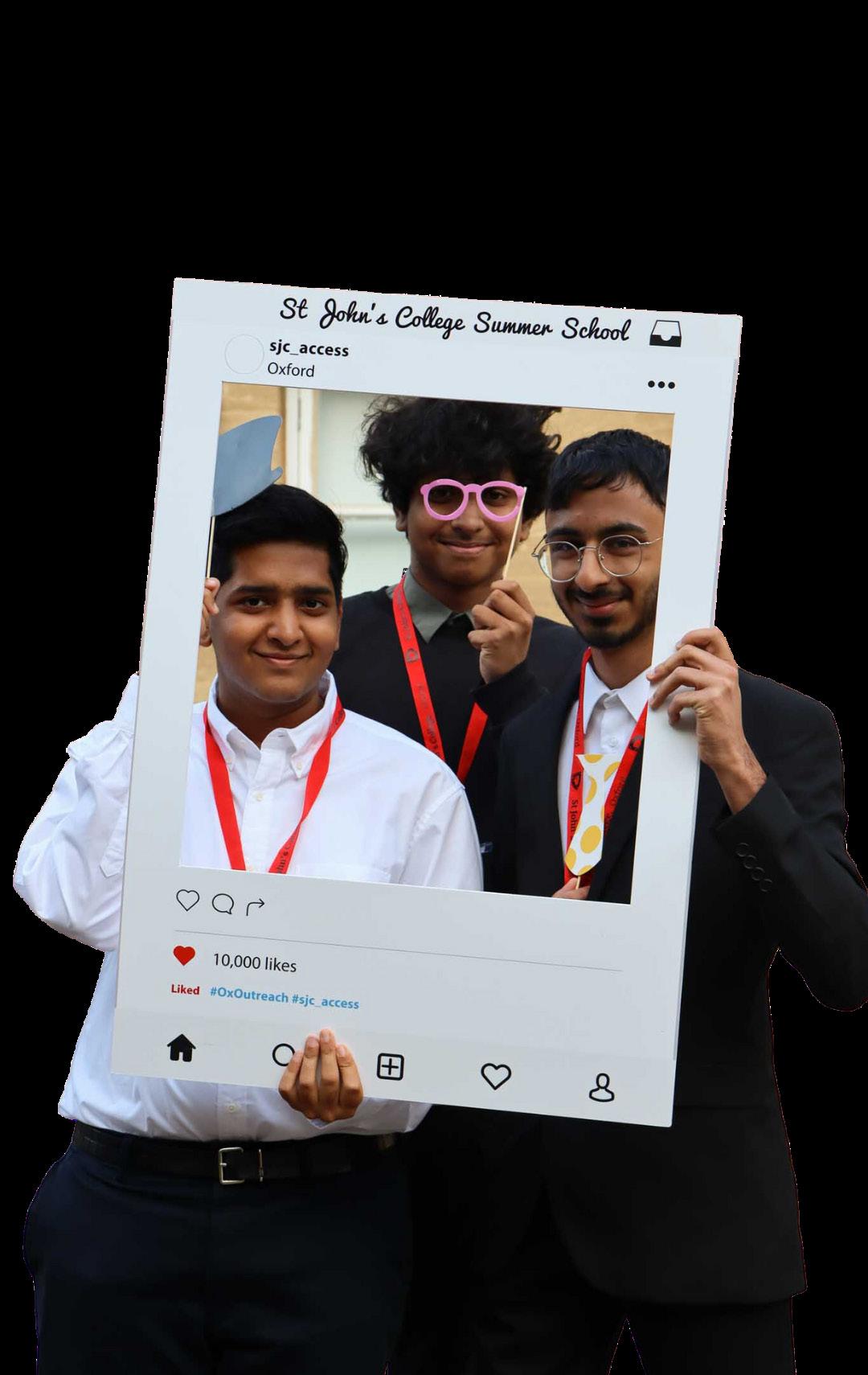
“It helped me a lot to understand that the stereotypes of Oxford aren’t true at all and I had great fun, making new friends.”
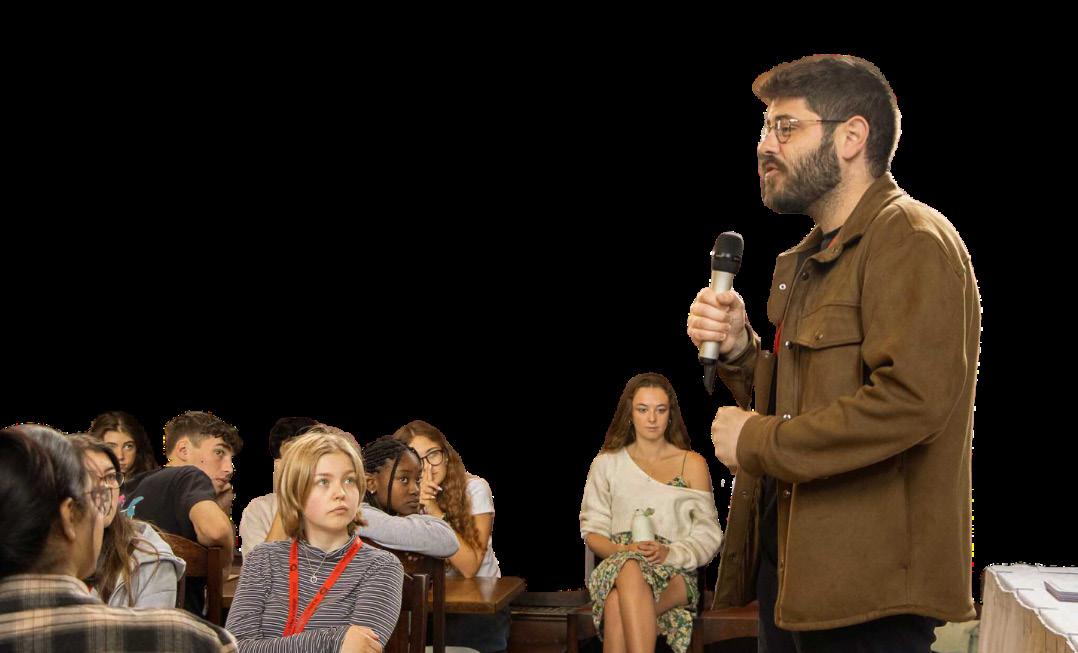
“The tour round another college was very helpful to get an understanding of Oxford college as a whole and how different colleges can be to one another which I would not have known otherwise. The formal dinner too was so much fun and I learnt a lot about myself from it and not to mention the food was incredible and servers super polite!”
“Living and being in an actual Oxford college (and like a student there), whilst meeting new people helped me learn a lot about myself and Oxford and has made me better prepared for university whether that be Oxford or somewhere else.”
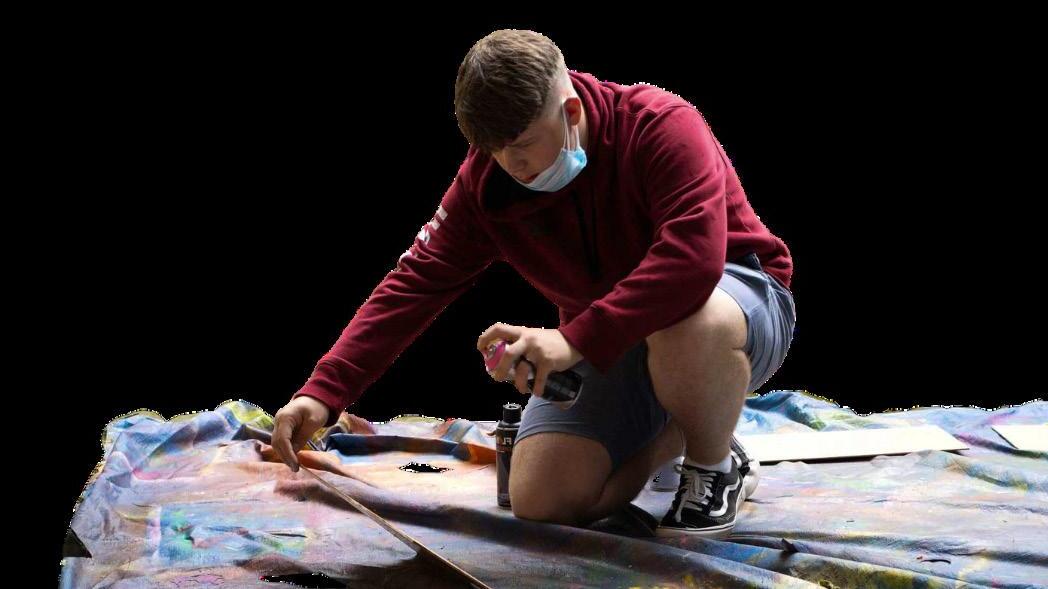
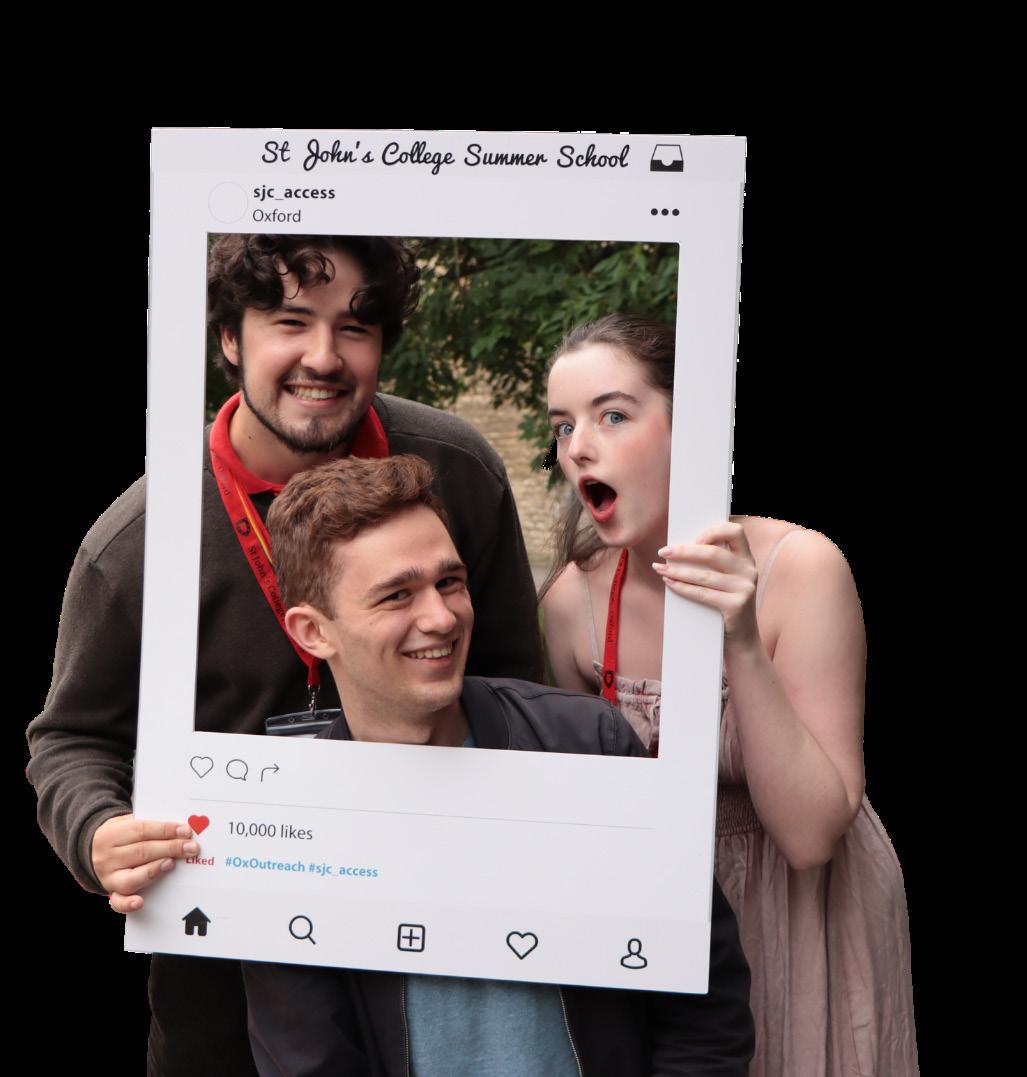
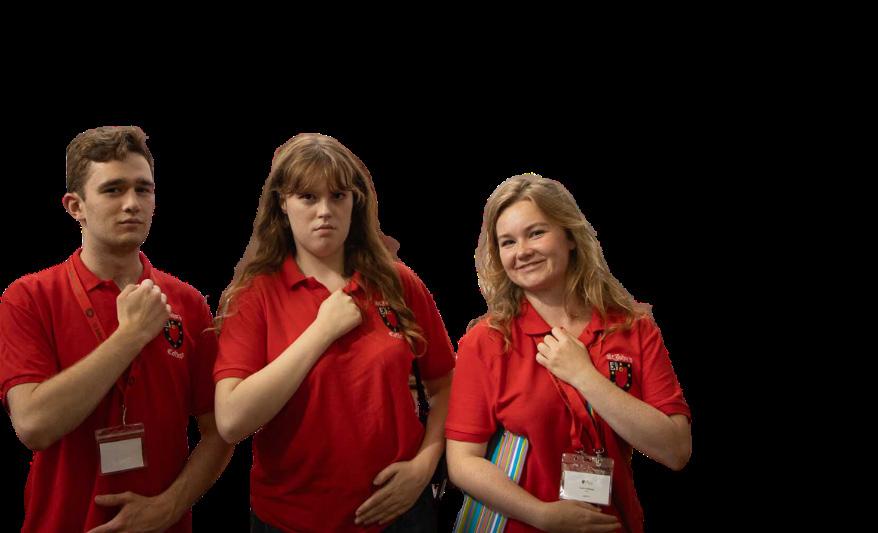
The Residential Summer Schools gave 25 St John’s students the opportunity to expand their transferable skills and take on leadership responsibilities as Student Ambassadors. Our Student Ambassors helped to plan the Summer Schools, took the lead in the academic Introduction to Oxford available to answer any students
“I highly enjoyed talking and socialising with the student ambassadors because they were so down-to-earth and friendly.”
“ I liked the quiz organised by students ambassadors. There were a lot of student ambassadors and all of them were very helpful


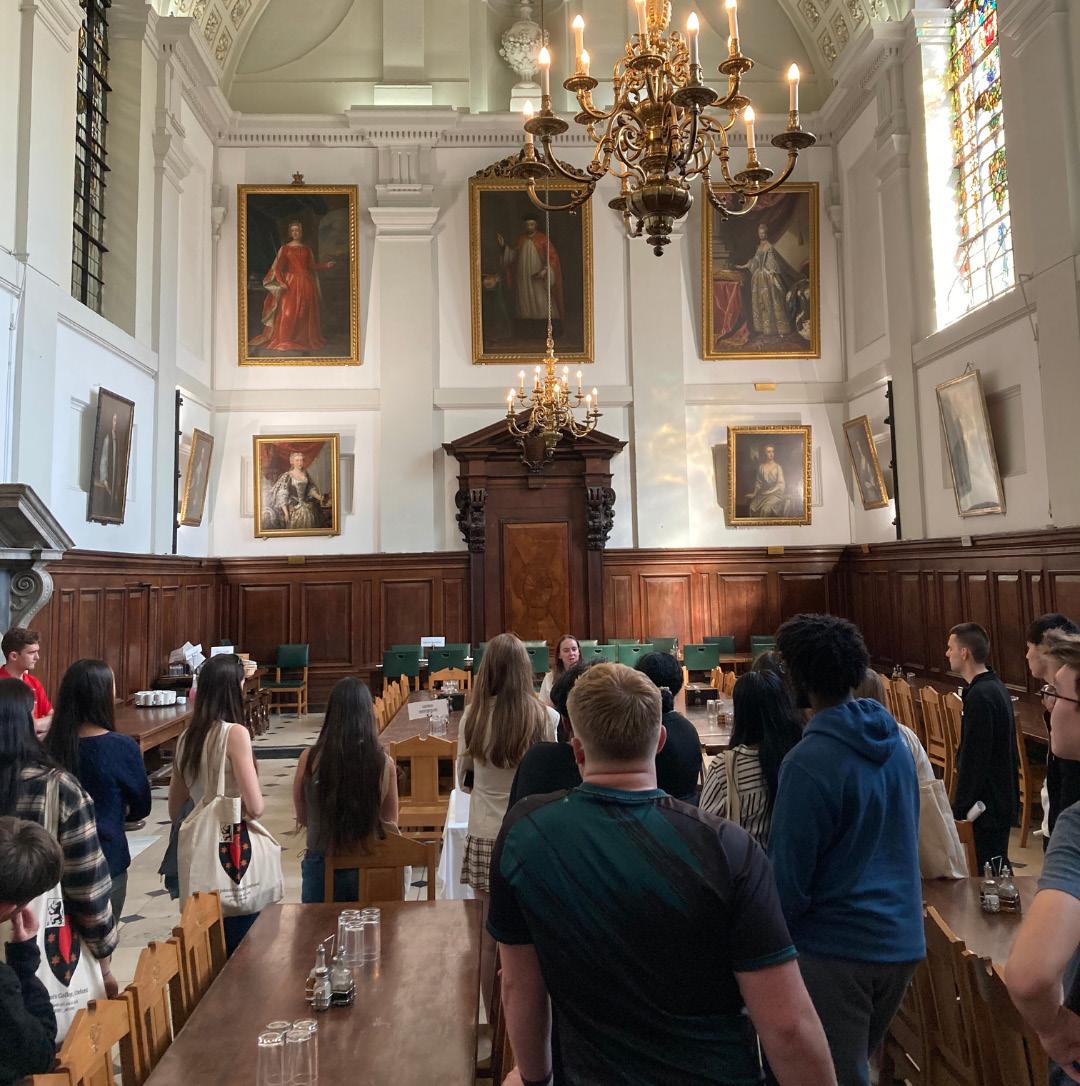


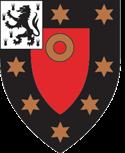



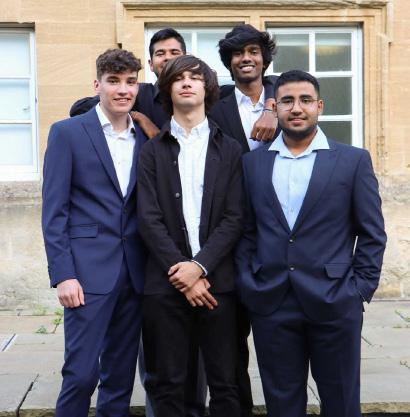

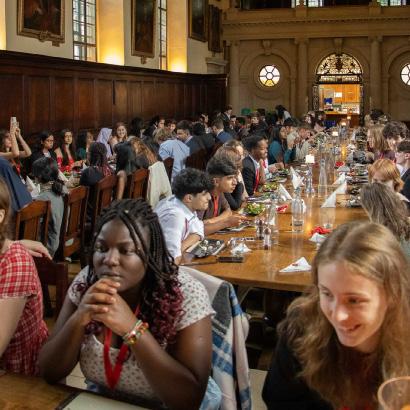
 Photo Gallery
Photo Gallery







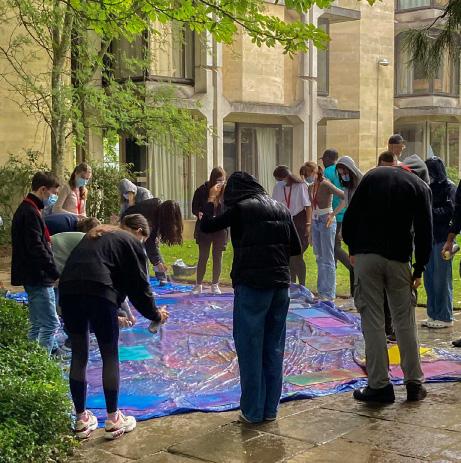
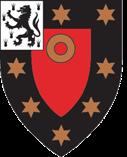
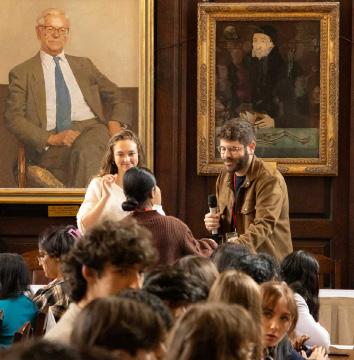

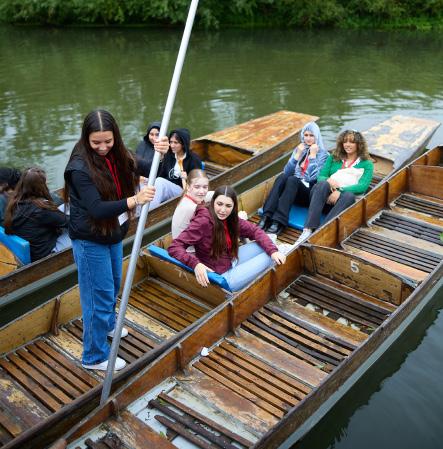

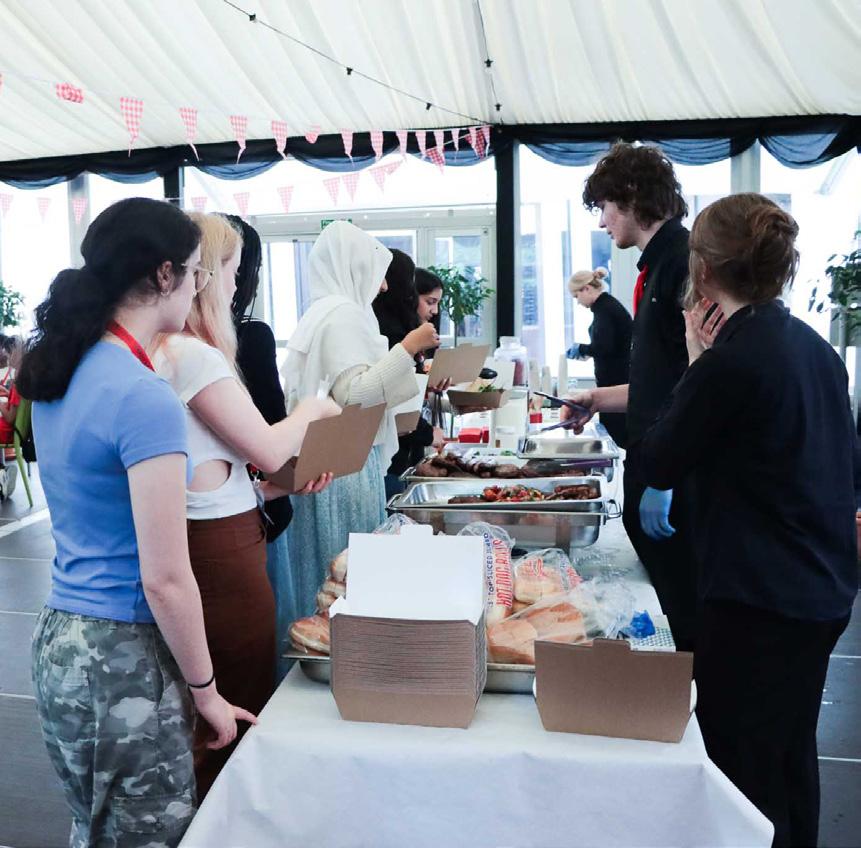

A Year in Numbers:
• 60 000 Pupil Contact Hours
Our Access and Outreach programmes reach thousands of pupils across the country each year. We continuously evaluate these interventions internally, and partner with specialist education evaluators and data consultancies to deliver independently verified analysis.
• 3941 Participants
• 300 Summer School Attendees
There is a very strong correlation between engaging with St John’s access programmes and attending significantly higher-ranked universities than peers from similar backgrounds.
80% of our participants go on to attend a top 1/3 ranked university. 20% of our participants go on to attend one of the top three universities in a given year.
We’re particularly proud of the fact that this pattern can be seen even with the most disadvantaged participants. Amongst the pupils from the 20% of postcodes with lowest historic progression to Higher Education, 78% of pupils go on to attend a top 1/3 ranked university with 10% attending one within the top three. On average just 38% of students who do go on to Higher Education from these postcodes will study at a top 1/3 institution.
